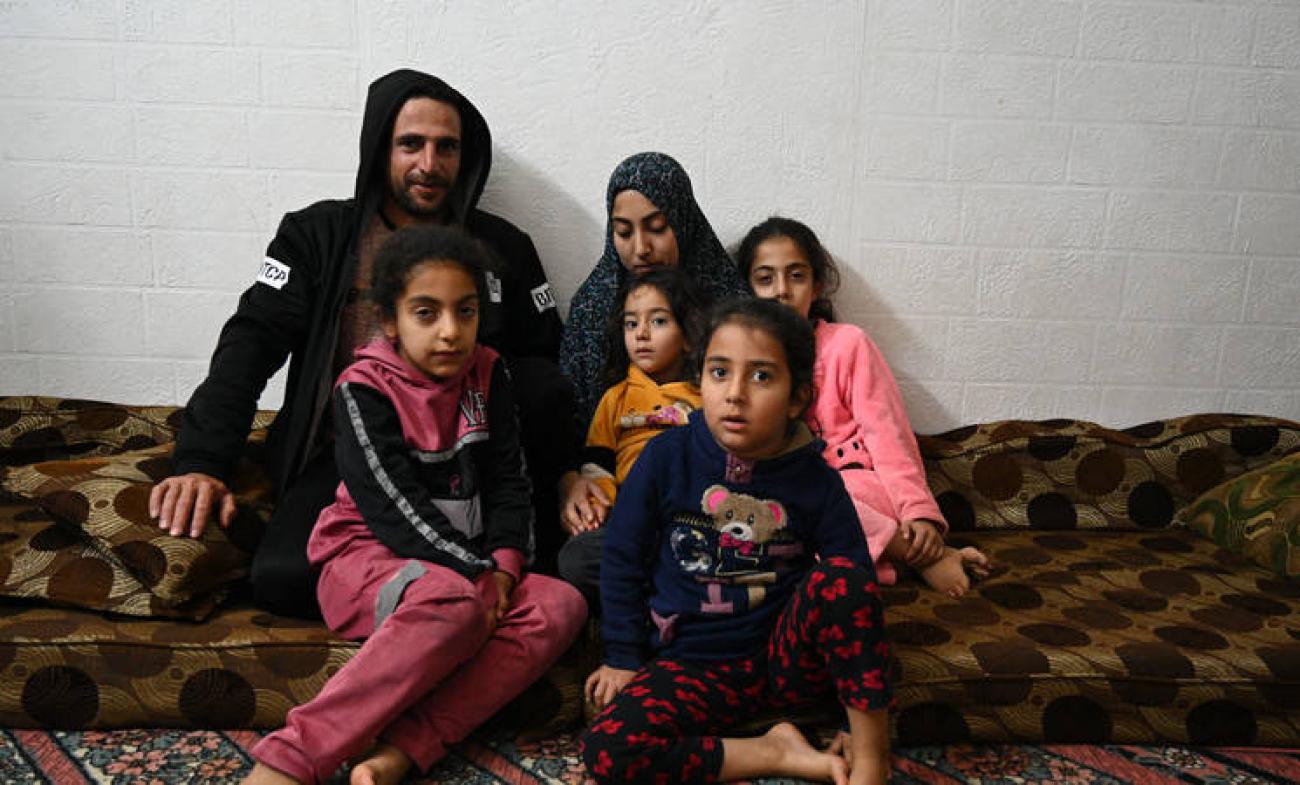Living with disability as a Palestine refugee from Syria in Jordan

Hammam Rammah and his family, Palestine Refugees from Syria, found refuge in Jordan after they fled the war in Syria.
“They say one hand alone cannot clap, but I believe it can do lots of things,” says Hammam Mohammad Sulaiman Rammah, a 34-year-old Palestine Refugee who fled with his family from Syria to Jordan (PRS) in 2015.
Hammam was born with a physical impairment in his left hand. In spite of this, he occasionally found work in agriculture al-Mezereeb, a Palestinian-dominated community in Syria, and was able to earn a modest living.
“I cannot say that life was easy, especially for a person living with one hand, but I needed to manage and did anything I could to earn a living and support my family for a life in dignity,” he said.
As the situation in Syria worsened, he decided to flee to Jordan to protect his family. “I had no option! I had to leave my home - the place where I was born and raised - and flee. It was not an easy decision for me back then, but my family’s safety was my top priority,” he recalled.
Like many other thousands of Palestine Refugees coming from Syria, the flight into the unknown was not easy. For Hammam, his wife and his daughter, life in Jordan was difficult from the start.
When they first arrived in Irbid, in the north of Jordan, they had no shelter or place to live. Even though he had no money, Mohammed was forced to rent an apartment for his family. For months, he was not able to pay rent, causing him a lot of problems with the owner.
“Since we arrived, I was not able find a job. This is not only because of my disability but also due to the difficult economic situation in Jordan,” he recalls. “Most employers will not hire a man with only one hand. The fact that I cannot earn a living and feed my family using my own hands devastates me.”
During his 13 years of living in Jordan, Hammam’s family grew, as did the financial challenges facing the family. “Every three months, we receive JD50 per family member in cash assistance from UNRWA. However, the cost of living is really high, and we are able to cover only a very small part of our expenses.” In addition to the monthly cash assistance, Hammam and his family have recently received a one-time cash assistance of JD 141 to help ends meet, but this is not enough.
Hamman and his family are not alone among PRS in Jordan. Eighty per cent of PRS households in Jordan rely on UNRWA cash assistance as main source of income. The employment status of PRS remains unstable and a majority of PRS households are food insecure. Hammam and his family are among the over 20,000 PRS who receive unconditional cash assistance and top-up cash assistance from UNRWA.
Jordan has remained a beacon of stability in a highly volatile region. However, the economic impact of COVID-19 coupled with rising global food and fuel prices has resulted in increasing unemployment, including among PRS residing in the country. UNRWA is committed to continue providing humanitarian assistance to PRS in Jordan as this critical support provides a lifeline and aims to contribute to long-term development and stability.

